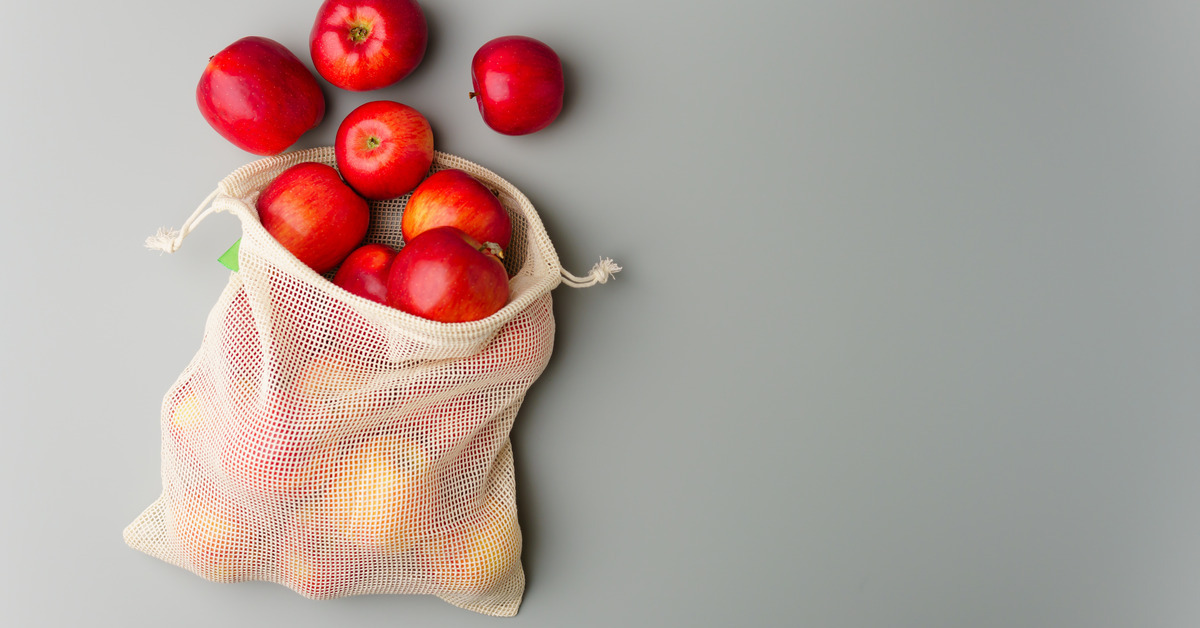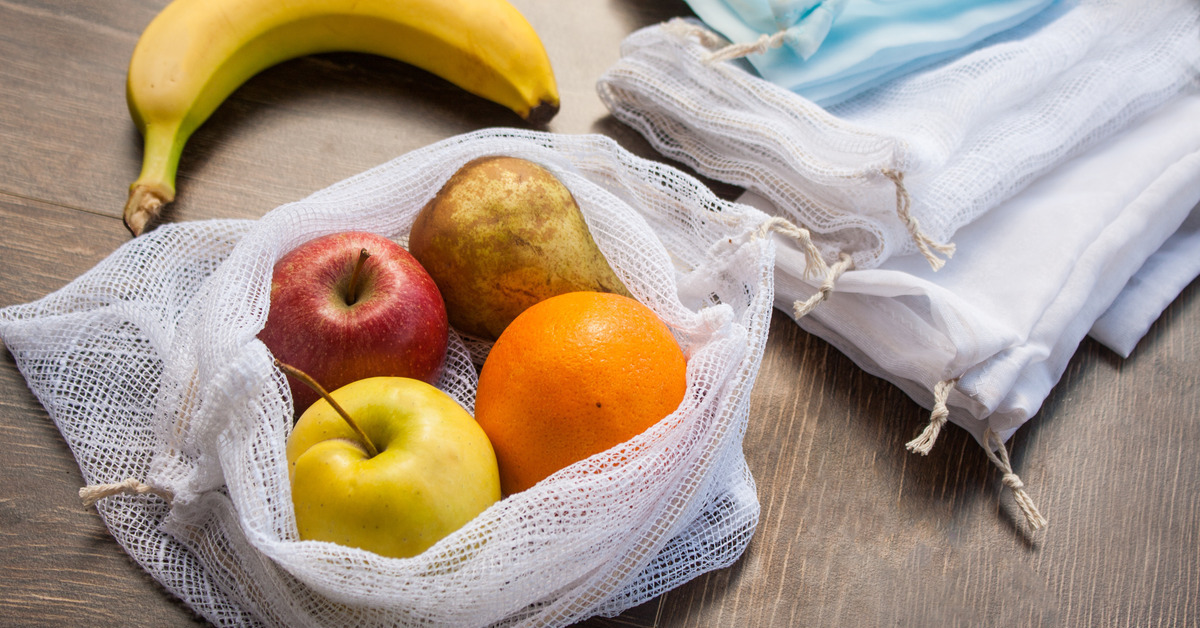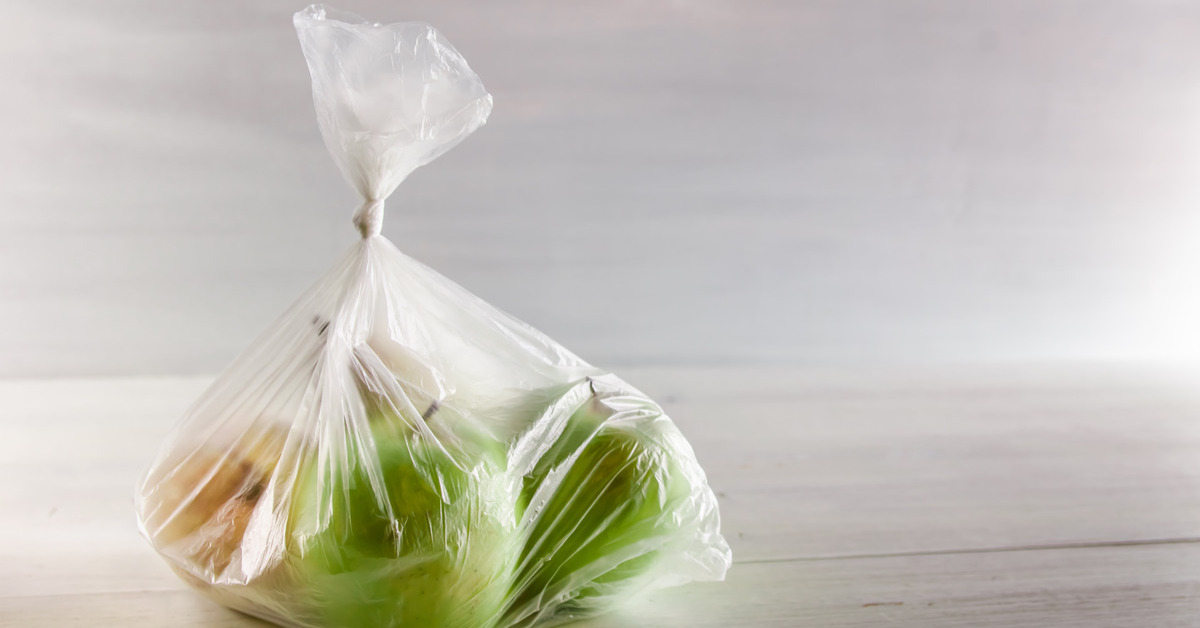Pros and Cons of Mesh vs. Plastic Produce Bags

Choosing the right produce bags might not seem like a game-changer, but their environmental impact is anything but trivial. With growing concerns over plastic pollution, farmers and grocery stores are looking for eco-friendly alternatives that benefit their businesses and the planet. Enter mesh produce bags—a promising replacement for traditional plastic ones.
If you’re unsure which option is better for your fruits, vegetables, and other produce, this guide will walk you through the pros and cons of mesh and plastic produce bags for stores so you can make an informed choice.
Why Produce Bags Matter
Produce bags play an essential role in the handling and selling of fruits and vegetables. They provide a convenient way to package items for customers, keep produce organized, and offer protection during handling and transport. These bags can significantly impact customer satisfaction and operational efficiency for grocery stores, farmers, and markets.
However, not all produce bags are the same. Choosing between mesh and plastic bags can affect freshness, convenience, and sustainability, the latter of which is a growing area of focus for many customers and businesses alike.
A Closer Look at Mesh Produce Bags

Mesh produce bags are reusable bags made from materials like organic cotton, nylon, or polyester. Their breathable design allows air to circulate, making them popular for storing fruits, vegetables, and other household items.
Unlike single-use plastic bags, mesh bags are designed for durability. They are washable, lightweight, and available in various sizes. Many businesses and eco-conscious customers are opting for these bags as part of their move toward a more sustainable lifestyle.
Pros of Mesh Produce Bags
There’s a lot to love about mesh produce bags. Here’s a closer look at their benefits.
Environmentally Friendly
Mesh bags are reusable and reduce reliance on single-use plastics, making them an excellent choice for businesses and individuals looking to lower their environmental footprint. By adopting these bags, you’re moving toward a more sustainable future.
Breathable
The open-weave design of mesh bags allows air to circulate, keeping produce fresh for longer. Unlike plastic bags, which can trap moisture and lead to premature spoilage, mesh bags help maintain the natural quality of fruits and vegetables.
Lightweight and Compact
One of the best things about mesh produce bags is how lightweight and easy they are to carry around. Whether heading to the grocery store or a farmer’s market, these bags fit seamlessly into your routine without adding unnecessary bulk.
Versatile
Mesh bags aren’t just for produce. Their sturdy and flexible design makes them perfect for storing other items like cosmetics and travel essentials, providing value beyond the produce aisle.
Cons of Mesh Produce Bags
While mesh bags have many advantages, they may not be ideal in every scenario. Here’s where they fall short.
Limited Protection
Mesh bags don’t offer as much protection as plastic bags, especially for delicate produce like berries or soft fruits, which can be easily damaged during handling.
Limited Containment
Smaller items or loose grains can sometimes slip through the openings in mesh bags, which might require you to use additional liners or more secure storage solutions.
Cleaning and Maintenance
Reusable mesh bags require regular cleaning to prevent dirt or moisture buildup. This adds a small layer of effort for users, particularly businesses managing their supply.
Initial Investment
Mesh produce bags usually have a higher upfront cost than plastic bags. While their reusability offsets this long-term, this can be a deterrent, especially for small businesses.
A Closer Look at Plastic Produce Bags

Plastic produce bags, often made from polyethylene, have long been the preferred method of packaging and transporting produce. They are lightweight and transparent and commonly found in grocery aisles and markets worldwide.
Despite their convenience, plastic produce bags have become a hot topic for their significant environmental downsides.
Pros of Plastic Produce Bags
Plastic produce bags have remained popular for decades due to their practicality. Here’s why they still appeal to many.
Convenience
Plastic produce bags are incredibly lightweight, easy to use, and widely available. Thanks to their convenience, customers often grab them without much thought during their shopping trip.
Hygiene
These bags provide a physical barrier between produce and potential contaminants during handling or transport, keeping fruits and vegetables clean and fresh.
Visibility
The transparency of plastic bags allows customers to quickly see what’s inside, a handy feature when selecting produce in a bustling grocery store or market.
Cost-Effective
For retailers and farmers, plastic bags are an inexpensive option. They’re usually supplied in bulk and often provided free of charge to customers.
Cons of Plastic Produce Bags
While convenient, plastic bags are becoming less popular due to their environmental impact. Here’s what you need to know about the downsides.
Environmental Impact
Plastic produce bags contribute to the global issue of plastic pollution. Most bags end up in landfills or the ocean, where they can take centuries to decompose, harming wildlife and ecosystems along the way.
Single-Use Waste
Plastic bags are often used once and discarded, leading to excessive waste generation. This makes them unsustainable, especially when billions of bags are used yearly.
Resource-Intensive Production
The production process for plastic bags relies on fossil fuels and generates significant greenhouse gas emissions, further increasing the environmental impact.
Lack of Biodegradability
Unlike materials like paper or cotton, plastic doesn’t naturally break down over time. Instead, it fragments into microplastics, which can persist in the environment indefinitely.
Finding the Right Fit for Your Business
There’s no one-size-fits-all answer when choosing between mesh and plastic produce bags for stores. Mesh bags are a fantastic option for businesses aiming to reduce their environmental impact and are a more sustainable choice for customers. On the flip side, plastic produce bags still appeal to consumers for their convenience, affordability, and hygiene benefits.
It ultimately comes down to your priorities. Is sustainability your focus? Mesh bags might be the way to go. Are you looking for the least expensive option with immediate availability? Plastic could still fit the bill.
For farmers and grocery stores, considering customer preferences and environmental trends is key to staying ahead of the curve.
Choose Better Bags for a Greener Future
At the end of the day, sustainable choices benefit not only the planet but also your business and its long-term reputation. Transitioning to reusable mesh bags helps reduce plastic pollution while sending a message that your business is a forward-thinking, eco-conscious brand. Understanding the pros and cons of mesh and plastic produce bags can help you make the right choice.
If you’re ready to switch to a more sustainable option, Saveway Supplies offers mesh produce bags in bulk. They’re the perfect choice for businesses seeking quality and eco-friendliness in one. Make the switch today. It’s good for the planet and good for business!

